
Lecture videos on Environmental and Climate Economics
During the spring semester 2014, EfD Sweden/Environmental Economics Unit recorded lectures from three PhD specialization courses in Environmental and Climate Economics held at the Department of…

During the spring semester 2014, EfD Sweden/Environmental Economics Unit recorded lectures from three PhD specialization courses in Environmental and Climate Economics held at the Department of…
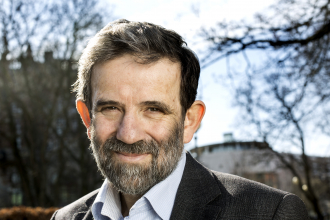
Thomas Sterner, Professor of Environmental Economics, University of Gothenburg, and Chair of EfD Research Committee, is awarded the Think Tank Green Budget Europe's prize of “Environmental Fiscal…
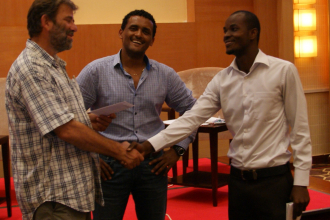
Samwel Lwiza is the winner of the newly created Gunnar Köhlin’s Best MSc Thesis Award. He received the prize at the closing day of the 8th Environment for Development Initiative Annual Meeting held in…
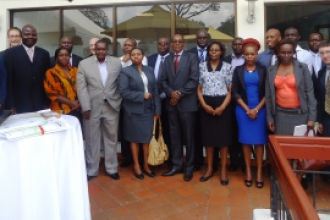
The Environment for Development (EfD) housed by the School of Economics University of Nairobi on Monday 27th October held a Water Policy Day at the Sarova Panafric Hotel Nairobi to share and receive…
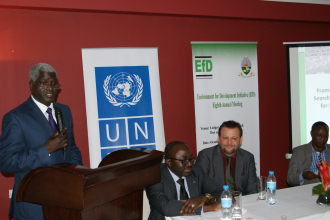
Tanzanian newspapers Raia Tanzania and Raia Mwema reported from the EfD Policy Day held on the 22 October 2014 in Dar es Salaam. Ola Olsson, Professor of Development Economics at the University of…

EfD Ethiopia Center Director and Senior Research Fellow, Alemu Mekonnen(Ph.D), has been invited to be a member of the Sustainable Land Management Technical Committee (SLM TC) of the country. He…
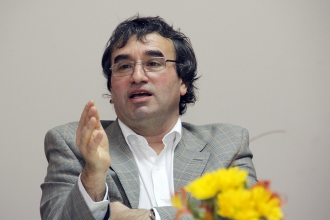
EfD researcher, Carlos Chávez, NENRE-Concepcion, has been appointed by the Chilean Government to collaborate as a member of the "National Commission of Lithium" ("Comisión Nacional del Litio", by its…
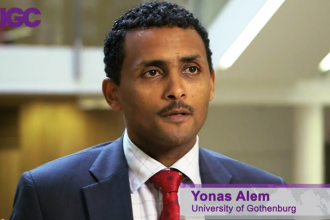
In less than two minutes research fellow Yonas Alem spreads the word of University of Gothenburg, the Environment for Development initiative, and research related to sustainable development. Check out…
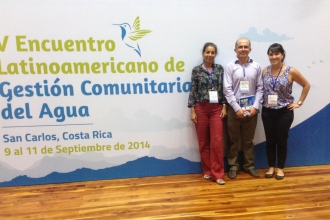
The keynote speech by EfD Senior Research fellow Ró ger Madrigal highlighted that climate predictions are substantially drier for most of Central America, and that adaptability of community based…
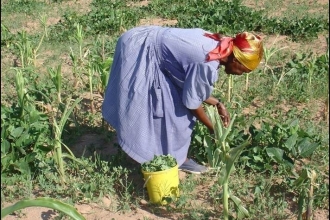
When weather-related shocks harm a rural farming family’s agricultural yields, thus reducing the household’s food supply, people turn to nature or their community as a way of coping. That’s why…